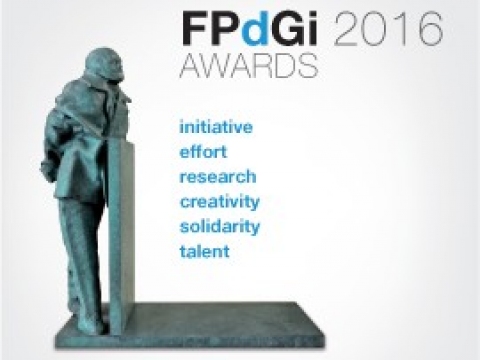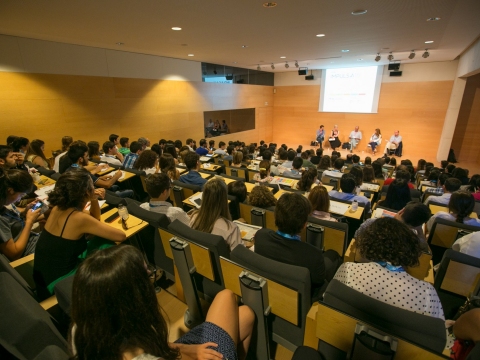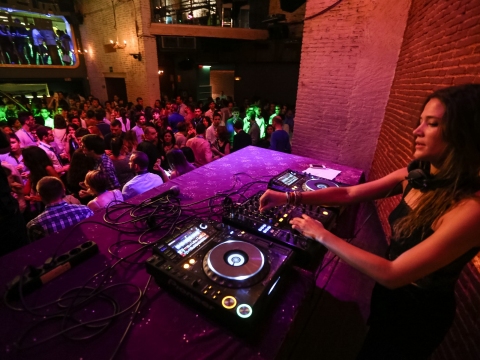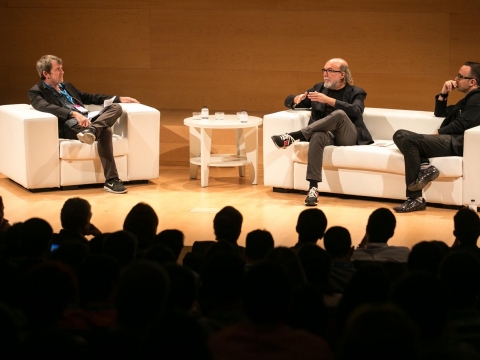XA (Xavier Aldekoa): There are just a few words that stand out in your life: education, education and more education.
GM (Graça Machel): I was lucky enough to be born into a family in which my father placed great emphasis on education. I was born just after his death, but he had said that all his sons and daughters should go to school. This meant the possibility of breaking out of the circle of poverty. Education made a difference to my future. Education was a path towards freedom. And boys and girls had to have the same rights.
XA: You focus a great deal on constructing the future based on women’s work. How do you intend to carry this out?
GM: Investing in women is investing in the family, in terms of economy and of social repercussion. The approach to a child, an adolescent or an adult is different, but they all share the same capacity for creativity, to empower their families, their communities and their nations. If we invest in education, families will obtain the best results in the future.
XA: You defend human rights, social justice; where do you find the energy and strength to fight so much?
GM: I have lived through various experiences in my life: I have seen desperate mothers watching how their children were dying because they had no medications; I have come across children who were desperate to go to school but were unable to do so for social reasons; I have been to refugee camps and I have seen the suffering of the children. All these people trusted me to be able to help them. I have the privilege of being able to address conferences like this one, or the United Nations or the public authorities of my country. This privilege requires the responsibility of working to solve these challenges.
XA: Beyond seeing Africa as a territory at war, it is also a continent of hope.
GM: We need to change the governments and the public authorities. We need to take steps towards this real change: 1) democratisation; 2) increased production; 3) investment in women, in university education there are more girls than boys; 4) Africa is a very fast-growing continent, communication via mobile devices has meant an immense progress, as has the transfer of money. We need to promote the well-being of each individual, as a challenge that we must control every detail of, but which has global repercussions. Over the next five or ten years, there will be very good news from Africa.
XA: How can the young people who are listening to us change the world?
GM: Young people have grown up in a society which communicates very quickly, we are very close to each other, like a human family, but at the same time, we are living amongst a great deal of intolerance, because we are frightened of others. I would basically say two things to them:
1- Respect human dignity, because as individuals we have more similarities than differences.
2- Do not turn your back on any injustice. Each of us is responsible for taking care of the others. If we exist, it is thanks to the people around us.
XA: Africa has one of the youngest populations in the world, what should the work of African leaders involve?
GM: Investing in education, in health. The average age of most of the 54 African countries is 17. This offers a great opportunity and a great challenge. They are faces, not numbers. By investing in a sustained way for 5 or 15 years, we would see great changes.
XA: The world has global problems that need global solutions.
GM: There are epidemics such as malaria which are very widespread. In Mozambique, the country where I was born, there is one of the six research institutes working to find a vaccine against malaria. A team led by Pedro Alonso has obtained a vaccine that is effective during the first 26 months of life and this is a success as children mainly die during the first 2 years of their life. Thousands of lives can be saved and this can have a repercussion on millions.






 Top
Top